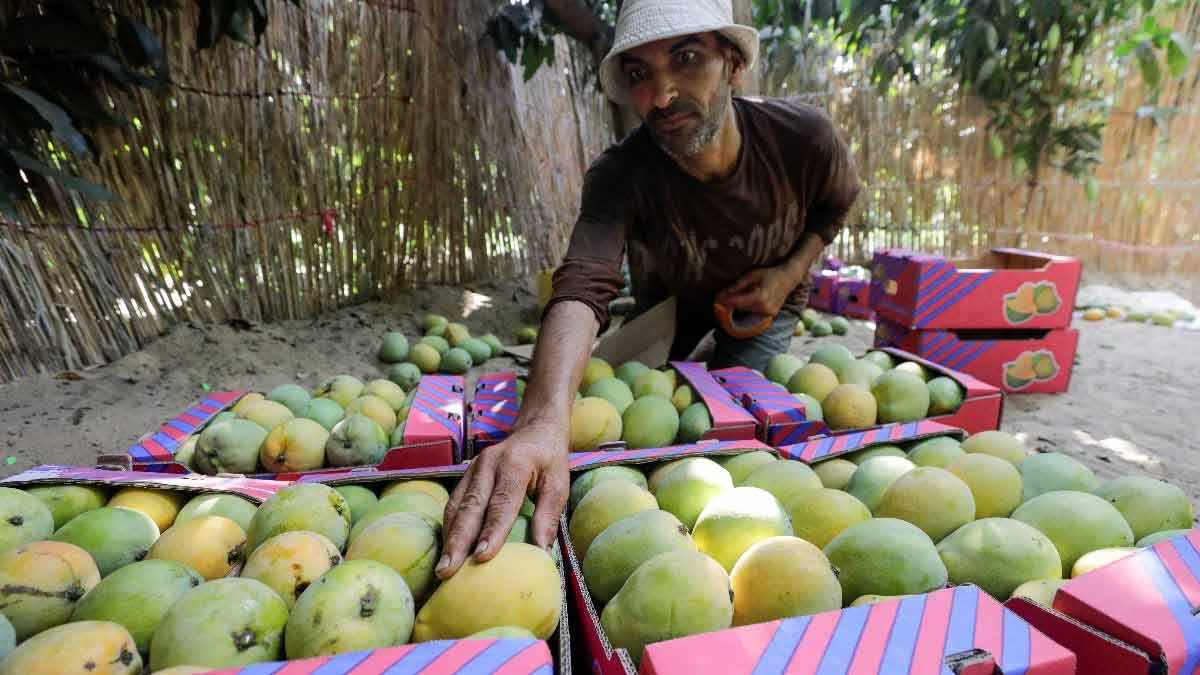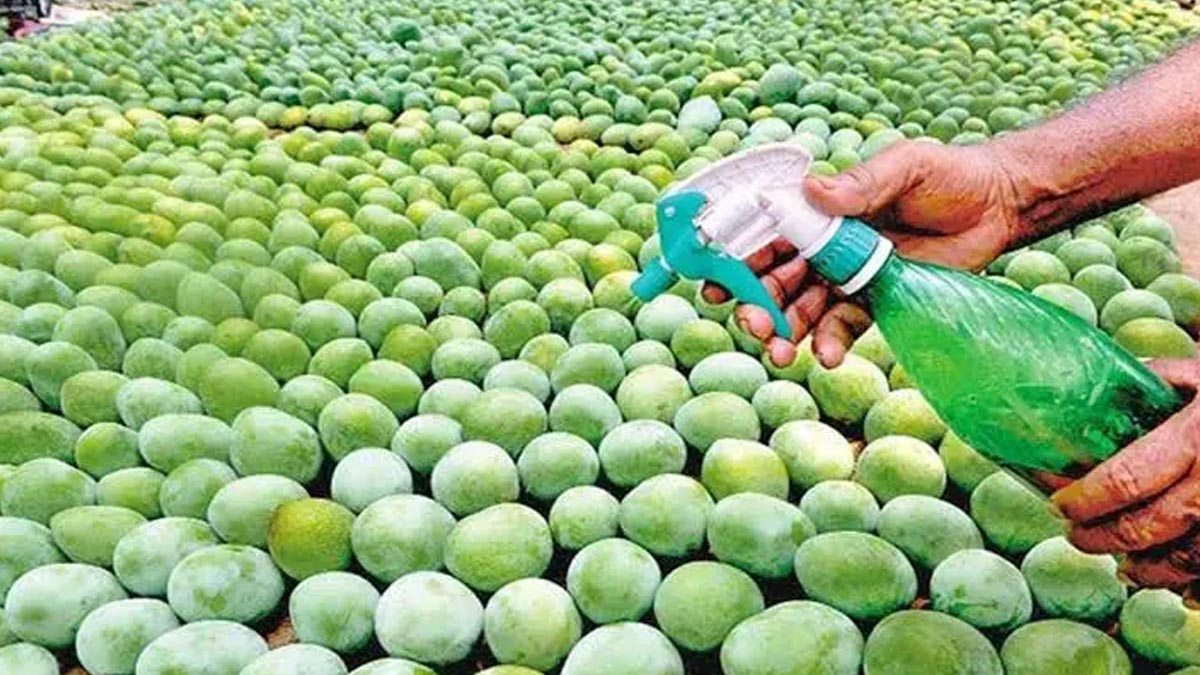
The Food Safety and Standards Authority of India (FSSAI) has issued a stern warning to traders and food business operators (FBOs) against the use of calcium carbide for ripening fruits. This chemical, commonly employed in the ripening of mangoes, poses significant health risks. FSSAI's directive emphasises the prohibition of calcium carbide under the Food Safety and Standards (Prohibition and Restrictions on Sales) Regulations, 2011, and highlights the severe consequences of non-compliance. This article delves into the health implications of calcium carbide and explores safer alternatives for fruit ripening.
Table of Content:-
The Dangers of Calcium Carbide
Calcium carbide is a chemical compound that when in contact with moisture, releases acetylene gas. This gas accelerates the ripening process of fruits but contains harmful impurities, including traces of arsenic and phosphorus. These contaminants pose severe health risks to consumers and handlers alike.
Health Risks
As per Dr Manish Itolikar, Consultant Physician, Fortis Hospital, Mulund, the consumption of calcium carbide leads to a plethora of issues, including:
Gastrointestinal Issues
The residues of arsenic and phosphorus hydrides from calcium carbide can irritate the gastrointestinal tract, causing abdominal pain, nausea, vomiting, and diarrhoea.

Neurological Effects
Arsenic exposure, even at low levels, can lead to headaches, dizziness, and in severe cases, neurological disorders and impaired cognitive function. Symptoms such as mood disturbances, memory loss, and seizures can also occur.
Respiratory Problems
Inhaling acetylene gas can cause throat irritation, coughing, and shortness of breath. Prolonged exposure may lead to more serious respiratory conditions.
Skin Irritation
Direct contact with calcium carbide residues can cause skin irritation, rashes, and allergic reactions in some individuals.
Also Read: Best Doctor Shows You Need To Watch Right Now
Long-term Health Implications
Prolonged consumption of fruits ripened with calcium carbide can increase the risk of chronic health conditions, including cancer and skin lesions. The persistent exposure to arsenic and phosphorus residues exacerbates these risks, making it crucial to avoid artificially ripened fruits.
Regulatory Measures
The use of calcium carbide for ripening fruits is banned under the Food Safety and Standards (Prohibition and Restrictions on Sales) Regulations, 2011. This regulation explicitly states that no person shall sell or offer for sale fruits ripened using acetylene gas. FSSAI has mandated strict compliance with this regulation, urging state and UT food safety departments to enforce the ban vigorously. FSSAI has called upon state and UT food safety departments to remain vigilant and take stringent action against those violating the ban. Ensuring adherence to these regulations is vital to protect public health and maintain food safety standards.
Safer Alternatives
Ethylene gas is a safer and legally permitted alternative for ripening fruits in India. It is a naturally occurring hormone that regulates the ripening process in fruits. Ethylene can be used at concentrations up to 100 ppm, depending on the crop, variety, and maturity. The treatment of unripe fruits with ethylene gas triggers the natural ripening process without the harmful effects associated with calcium carbide.
The Central Insecticides Board and Registration Committee (CIB & RC) have approved Ethephon 39% SL for the uniform ripening of mangoes and other fruits. Ethephon breaks down into ethylene gas, promoting a natural ripening process. This method ensures the fruits ripen uniformly and safely, preserving their nutritional value and flavour.
Consumer Awareness and Safety Measures
Also Read: ICMR Releases Diet Guidelines For Women Who Do Not Exercise Regularly
Identifying Naturally Ripened Fruits
Consumers can safeguard their health by choosing naturally ripened fruits. Mangoes ripened with calcium carbide often exhibit an unnaturally uniform yellow colour and lack the typical mango scent. Opting for organic mangoes can reduce exposure to harmful chemicals.
Washing and Soaking Fruits
Thoroughly washing fruits before consumption is essential to remove any chemical residues. Soaking mangoes in water for an hour can help reduce the presence of harmful substances, making them safer to eat.
Bottomline
The use of calcium carbide for ripening mangoes and other fruits poses significant health risks due to the presence of arsenic and phosphorus residues. FSSAI's strict prohibition and the promotion of safer alternatives like ethylene gas and Ethephon are crucial steps toward ensuring food safety. Consumers must remain vigilant and choose naturally ripened fruits to protect their health. By adhering to these guidelines, we can enjoy the full flavour and nutritional benefits of mangoes without the associated health hazards of chemical ripening agents.
Also watch this video
How we keep this article up to date:
We work with experts and keep a close eye on the latest in health and wellness. Whenever there is a new research or helpful information, we update our articles with accurate and useful advice.
Current Version
